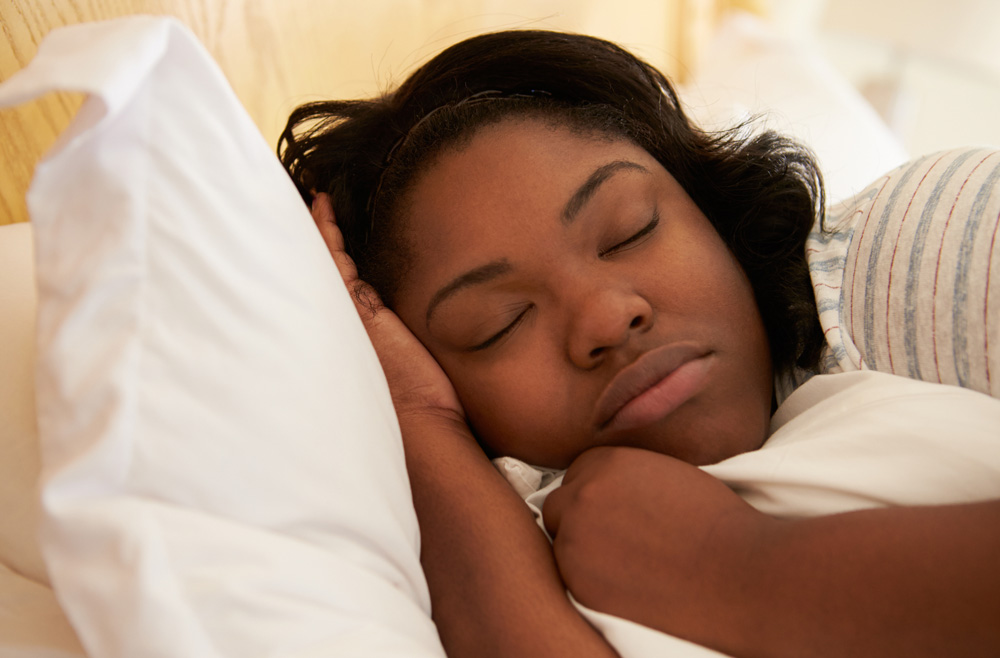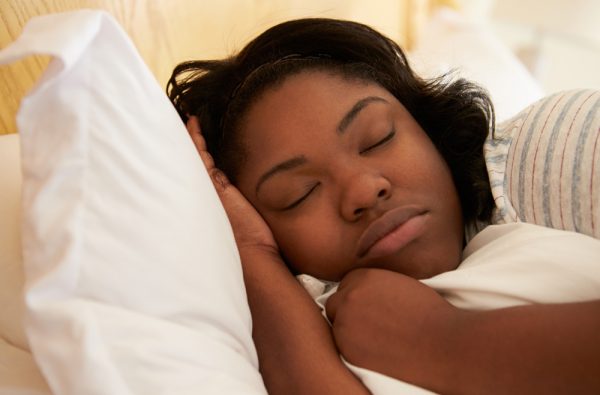Last week at SMW Lagos, I attended a session facilitated by Ore Fakorede on sleep. It held in a room with two-rowed, medium-sized benches. By the time I checked, it was 6:33 pm. I had stayed longer than planned. I had sat for the whole presentation.
Ore Fakorede did not bewitch me (that was not his art) to stay longer but as he spoke and interacted with the participant, for the first time I felt different about sleep. A difference resulting not from my sentiment or my love for sleep but knowledge. I began to appreciate more the fact that I don’t have issues with sleeping, I actually enjoy my sleep.
-

Ore Fakorede.
Source: Ugo Ekemezie
Sleep is your Super-power! That was the title of his presentation. He outlined some levels of sleep, and went on to discuss the health effect of sleep or lack of it on productivity; how technology can reduce sleep quality; the blue light; noise pollution; how to sleep better without drugs, everyday food that improves sleep quality; how music and technology can improve sleep quality among others. He stated that his explanations were scientific and experimental.
We’ve all heard how to condition our bodies to have less sleep in order to achieve different results, however, this has become a routine for many, not the exception. We even take coffee to suppress sleep. We often refer to this as “burning the candle on both ends” without realizing that if unaccounted for, has deadly repercussion to our health. Aside from some who have issues sleeping, this sleep deprivation has contributed to a growing number of cases of sleep disorder.
Sleep is actually healthy and a requirement of the body to function effectively. Learning about what sleep does to the body and how important this is will change our attitude towards sleep. Though I understand the place of making sacrifices to finish projects, much more now I have a reason to enjoy my sleep and stop feeling as though something is wrong with me for sleeping well.
Levels of sleep
In his presentation, Ore pointed out certain levels of sleep to include:
- light sleep (when one dozes off and literally almost falls. It takes, on the average 14minutes to doze off);
- deep sleep (this is where the action takes place and for some people, they sleep-talk and/or sleepwalk without knowing what they are doing. This is dangerous as it can lead to accidents);
- Rapid Eye Movement or REM (at this level we experience reinforcement of memory and we dream).
By not sleeping, we miss out on the advantages that can only be enjoyed when we sleep. To sleep, the body needs the ideal temperature of 16-18 degrees centigrade, Fakorede explained.
It is not normal to sleep less than 7-8hours even when you have conditioned your body to do so. In the end, the effects of this sleep deprivation could be damning. It could escalate to tremors, susceptibility to obesity and type 2 diabetes, a weakened immune system and even decreased testosterone. Its immediate effect is the tendency to make one feel intoxicated.
Blue light & noise
Two very significant cause of difficulty to sleep, among others, is our phone and noise. The phone here is not in reference to an addiction to the device instead it is that we have artificially created another atmosphere with the device blue light. Naturally, the sunsets and everywhere becomes dark for a reason, to give us the right conditions for sleep. The blue makes it difficult to sleep. We must learn to turn off our devices or put them away where they will not interrupt our sleep. A dark room is good for sleep.
Sleep is difficult in a noisy atmosphere. If noise is a challenge in your environment, you should consider getting sleeping pods or even use headphones (this will not drown out noise completely). Again, learn to drive out the internal noise caused by worries. For many people, the enemy that must be neutralized is self. Worry has been proven to create new problems, not solve old ones.
Food
It is time to help yourself with an array of everyday food that can help you sleep better. These natural foods produce either melatonin (the sleep hormone), tryptophan or potassium (which makes your body relax):
- They are oatmeal (which helps produce melatonin),
- banana (the perfect pre-workout food and is a source of melatonin),
- almonds,
- salmon,
- sardines,
- spinach,
- green vegetables like pumpkin leaves—ugwu.
However, their effects and not immediate. In addition, tea has a strong effect on sleep—passionflower tea, valerian among others. Marconi Union’s song, Weightless will be very helpful for sleep too.
In Japanese culture, sleeping on the subway or at the office is the sign of a hard worker, called inemuri. You must make a decision today to care for your body so you can escape fatigue and other consequences of sleep deprivation. In this ever busy world, you must learn to maintain a work-life/sleep balance. The body needs sufficient sleep to function properly and productively, sleep helps to invigorate the body.
Check out Ore Fakorede’s Release Lifestyle: The No-Sleep Nightmare
Featured image source: Louis Med. Hospital


